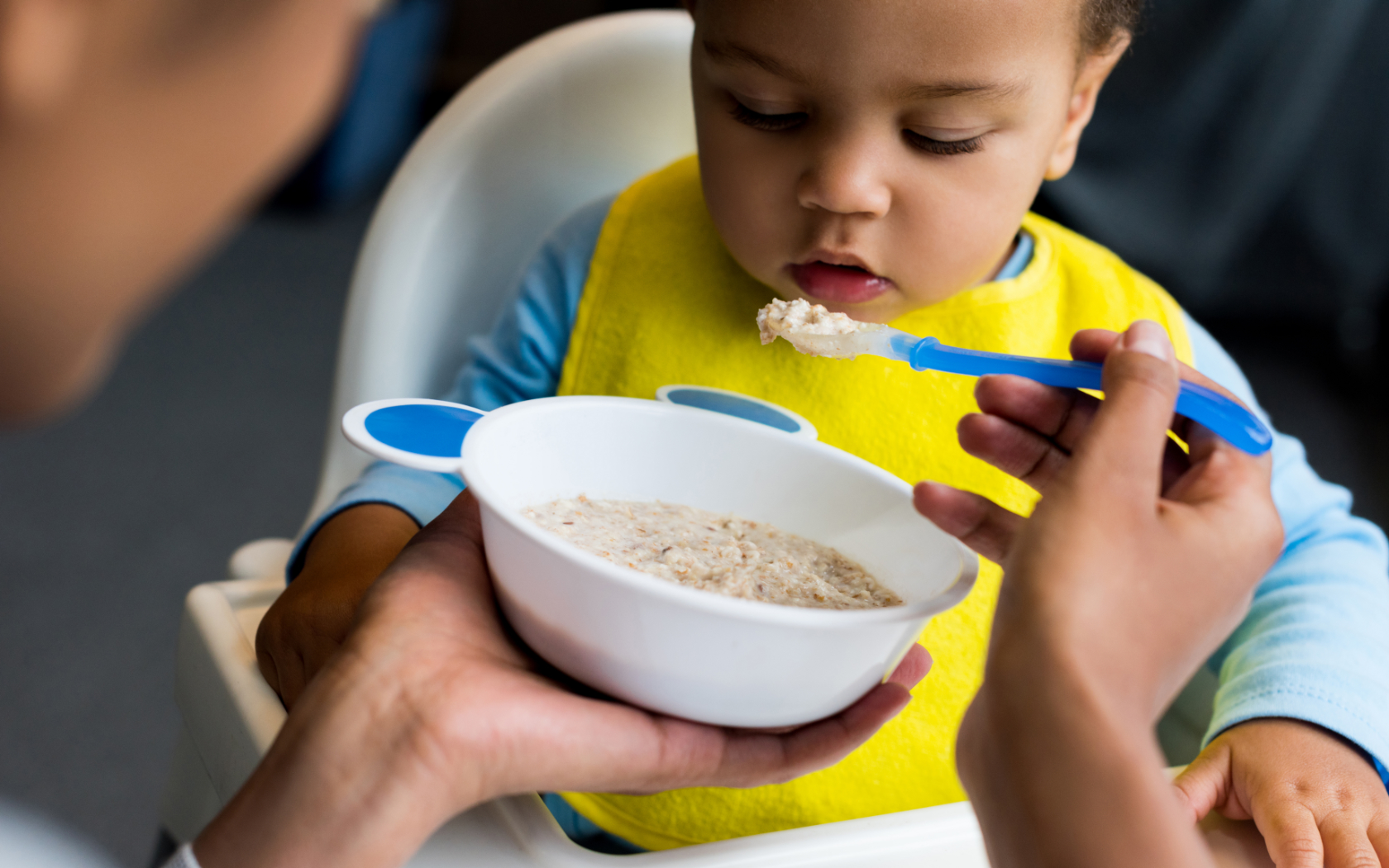Pediatric Feeding Therapy in Houston
Pediatric Feeding Therapy In Houston
Pediatric feeding therapy is a specialized form of therapy that focuses on helping children who have difficulties with eating, drinking, and swallowing. It addresses a wide range of issues such as oral sensory processing, food aversions, picky eating, and difficulty transitioning to solid foods. These challenges can often lead to frustration and stress for both the child and their caregivers.
In this article, we will discuss what is pediatric feeding therapy and its benefits, the common issues addressed in pediatric feeding therapy, and how it is conducted in Houston. Also, we will explore the different techniques and strategies used in pediatric feeding therapy and how they can help children overcome their feeding difficulties. Whether your child has a diagnosed condition or is simply struggling with eating, pediatric feeding therapy can be a valuable resource for families in Houston.
What is Pediatric Feeding Therapy?
Pediatric feeding therapy is a child-centered and family-focused approach to addressing feeding issues in children. It involves an interdisciplinary team of professionals, including occupational therapists, speech-language pathologists, registered dietitians, and psychologists who work together to assess and develop a personalized treatment plan for each child.
The goal of pediatric feeding therapy is to improve the child’s oral motor skills and sensory processing abilities, as well as their overall feeding behavior. This can ultimately lead to better nutrition, improved growth and development, and a more positive relationship with food.
Plus, pediatric feeding therapy also aims to support and educate caregivers on how to manage their child’s feeding difficulties at home. Also, it helps to address any underlying psychological or behavioral factors that may be contributing to the child’s feeding issues.
Benefits of Pediatric Feeding Therapy
Pediatric feeding therapy offers numerous benefits for children and their families. Some of these include:
- Improved oral motor skills: Children who struggle with eating may have weak oral muscles that make it challenging to chew or swallow food. Through specialized exercises and techniques, pediatric feeding therapy can help strengthen these muscles, making eating a more comfortable and enjoyable experience.
- Expanded food repertoire: Children with feeding difficulties often have limited diets, leading to potential nutritional deficiencies. Pediatric feeding therapy helps children gradually expand their food repertoire and introduce new textures and tastes into their diet.
- Reduced stress during mealtimes: For families of children with feeding difficulties, mealtimes can be a source of stress and anxiety. Through education and support, pediatric feeding therapy can help caregivers create a more positive and relaxed environment during meals.
- Improved quality of life: By addressing feeding issues, pediatric feeding therapy can improve the child’s overall well-being and quality of life. It can also lead to increased independence and self-confidence in their ability to eat.
- Support for caregivers: Feeding difficulties can take a toll on caregivers, both emotionally and physically. Pediatric feeding therapy provides support and guidance to help caregivers manage their child’s feeding issues effectively.
Does My Child Need Pediatric Feeding Therapy?
If your child is experiencing difficulties with eating, drinking, or swallowing, they may benefit from pediatric feeding therapy. Some common signs that your child may need feeding therapy include:
Firstly, if they have difficulty transitioning to solid foods or rejecting certain textures or tastes. Secondly, if they have a limited diet and are not getting enough nutrients from their food intake. Thirdly, if mealtimes are stressful and result in tantrums or meltdowns.
Additionally, children who have been diagnosed with conditions such as autism spectrum disorder, sensory processing disorder, or cerebral palsy may also benefit from pediatric feeding therapy. Also, if your child has a history of feeding issues or is experiencing delays in their growth and development, it may be worth considering pediatric feeding therapy.
Also, it is essential to consult with your child’s pediatrician before starting any therapy to rule out any underlying medical conditions that may be contributing to their feeding difficulties.
Techniques Used in Pediatric Feeding Therapy
Pediatric feeding therapy utilizes a variety of techniques and strategies to address feeding difficulties in children. These may include:
- Oral motor exercises: These are specialized activities that help improve the strength and coordination of oral muscles involved in eating, chewing, and swallowing.
- Sensory integration techniques: Sensory processing difficulties can impact a child’s ability to tolerate different textures and tastes of food. Sensory integration techniques aim to desensitize the child’s oral sensory system, making it easier for them to try new foods.
- Food chaining: This is a gradual and systematic approach to introducing new foods to a child’s diet. It involves building on familiar foods and gradually adding in new textures or flavors.
- Behavioral interventions: Sometimes, feeding difficulties can be linked to underlying behavioral issues such as anxiety or aversions. Behavioral interventions aim to address these issues through positive reinforcement techniques and teaching coping strategies.
- Parent education and support: Caregivers play a vital role in their child’s feeding therapy. Therefore, parent education and support are essential components of pediatric feeding therapy to help caregivers understand and implement strategies at home.
Is Pediatric Feeding Therapy Right for My Child?
It is natural for parents to have concerns and questions about whether pediatric feeding therapy is the right approach for their child. If your child’s feeding difficulties are causing challenges in daily life, it may be worth considering pediatric feeding therapy as a potential solution.
Ultimately, the decision should be made in consultation with your child’s healthcare team, including their pediatrician and any specialists involved in their care. They can provide valuable insight into your child’s specific needs and whether pediatric feeding therapy may be beneficial for them.
Remember that every child is unique, and what works for one child may not work for another. Therefore, it is crucial to approach pediatric feeding therapy with an open mind and be willing to explore different techniques and strategies until you find what works best for your child.
With patience, perseverance, and the support of a qualified therapist, pediatric feeding therapy can help your child develop a positive relationship with food and improve their overall well-being. So, if you have any concerns about your child’s eating habits, do not hesitate to talk to your child’s doctor and explore the option of pediatric feeding therapy.
Contact Little Eaters & Talkers for Pediatric Feeding Therapy in Houston
If you are seeking reliable and specialized pediatric feeding therapy services in Houston, look no further than Little Eaters & Talkers. Our dedicated team of experts is committed to helping your child develop a healthy relationship with food and overcome any feeding difficulties they may be experiencing.
Jean Hawney is a highly experienced and qualified speech-language pathologist, with over 12 years of experience in pediatric feeding therapy. She brings a compassionate and personalized approach to each child, working closely with families to develop effective strategies for improving their child’s eating habits.
Our services are conveniently offered through personalized home visits, bringing the therapy directly to your doorstep. This not only saves you time and effort but also allows for a more natural and comfortable environment for your child.
Don’t hesitate to reach out to us at (832)304-3506 or via email at info@thelittleeaters.com for any questions or concerns regarding your child’s feeding development. We are here to support you and your little one on their journey towards a positive and healthy relationship with food. Contact us today and let us help your child thrive!
FAQs
What is pediatric feeding therapy and how can it help children in Houston?
Pediatric feeding therapy in Houston is a specialized form of therapy aimed at helping children with feeding problems develop healthy feeding skills. Through a combination of clinical observations, initial evaluation, and tailored interventions, therapists work on addressing issues related to swallowing, sensory aversions, or motor skills affecting feeding. This therapy often involves occupational therapy techniques and considers nutritional factors to ensure the child receives adequate nutrition for growth and development.
Can pediatric feeding therapy assist premature infants experiencing feeding difficulties?
Yes, pediatric feeding therapy is particularly beneficial for premature infants in Houston who may face challenges with feeding due to underdeveloped oral-motor skills. Therapists specialize in assessing and enhancing an infant’s ability to feed effectively, focusing on techniques that support their transition from tube feeding to bottle-feeding, and eventually to table foods, considering each child’s unique developmental timeline.
What does the initial evaluation for pediatric feeding therapy involve?
The initial evaluation for pediatric feeding therapy in Houston involves a comprehensive assessment of the child’s feeding and nutritional history, clinical observations of feeding practices, and an examination of the child’s oral-motor skills, sensory responses, and overall development. This evaluation helps therapists identify specific feeding problems and develop a personalized treatment plan that addresses the child’s unique needs.
How does pediatric feeding therapy incorporate social groups into the treatment process?
In Houston, pediatric feeding therapy sometimes utilizes social groups as part of the treatment strategy to enhance the child’s feeding skills and social interaction simultaneously. These groups allow children to observe and model positive feeding behaviors from peers in a structured yet natural environment. Engaging with others in a group setting can also help reduce anxiety around eating and encourage children to try new foods in a supportive, fun context.
Conclusion
Pediatric feeding therapy is a specialized approach to addressing feeding difficulties in children. It utilizes various techniques and strategies tailored to each child’s specific needs, with the ultimate goal of helping them develop a positive relationship with food and improve their overall well-being.
If you have any concerns about your child’s eating habits, do not hesitate to consult with your child’s healthcare team and explore the option of pediatric feeding therapy. And if you’re in Houston, Little Eaters & Talkers is here to provide compassionate and personalized care for your child’s feeding development. Contact us today to learn more!





